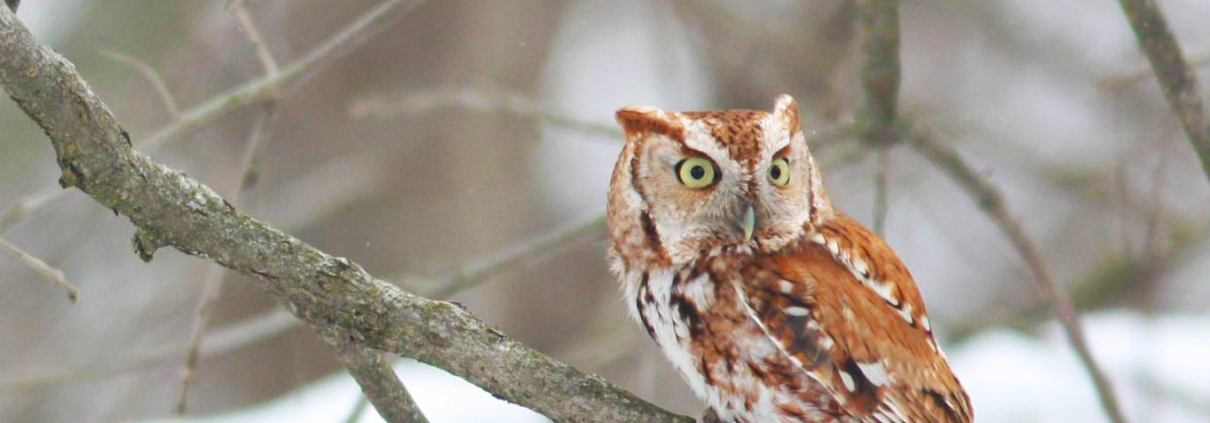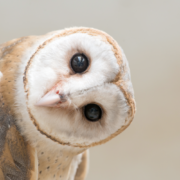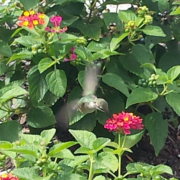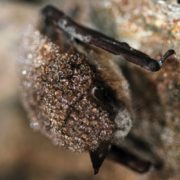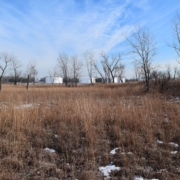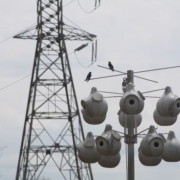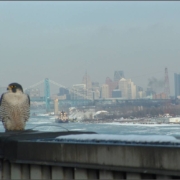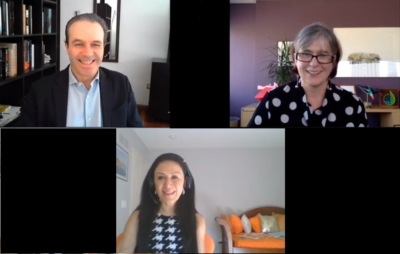5 Ways to Keep Your Conservation Program Thriving This Winter
Winter is just a few weeks away. For many of us, the drop in temperature comes with an increase in to-do items — from year-end tasks to holiday celebrations. During this busy time of year, it’s important to take some time to consider what the new season means for any conservation projects that you’re a part of. Lax or maladapted winter maintenance can undercut the hard work that you’ve done all year. Conversely, taking the unique winter needs of the species on your site into consideration can enhance your year-round efforts. Here are some ideas for keeping your conservation program going this winter.
1. Look out for Bats
Many bat species hibernate in caves, mines or buildings during the winter. If bats hibernate at your site, take note of their location and avoid interaction — if a hibernating bat is disturbed, their metabolism will speed up and they could quickly deplete fat reserves meant to last the entire winter.
Many bat species only use bat boxes in warm months, making the winter an ideal time to perform routine maintenance on your site’s boxes. Keep in mind that some bat species, like the big brown bat, do sometimes overwinter in bat houses, so it’s important to have a sense of what species are present in your area.
2. Put Down the Pruners
Many pollinator species overwinter in leaf litter and loose soil, and butterfly pupae can often be found on bare stems and stalks. When possible, avoid mulching or over-tidying your pollinator gardens to provide important winter habitat. If you’re concerned about appearance, consider supplementing your garden with informative signage explaining the ways in which an unkempt garden can help wildlife — visitors might be inspired to go home and do the same in their own yards!
3. Maintain Space for Birds
While winter may be a good time to perform nest box maintenance, don’t take them down altogether! As discussed in a previous WHC Wildlife Blog post, the bird boxes you’ve placed on-site for springtime nesting can provide overwintering shelter for small mammals and non-migratory bird species.
If any of your projects involve native tree or shrub planting, ensure that you’ve planted some species that produce berries in the winter to maintain a food source for non-migratory birds — or for birds that have migrated to your area for the season. If you take inventory of bird species, wintertime monitoring can give you an idea of how species distribution varies between seasons.
4. Continue to Monitor Invasive Species
While cold weather may stave off some invasive species, plants like garlic mustard and insects like the emerald ash borer can endure the winter (young borers even produce glycerol, which acts as an internal antifreeze agent). Knowing what invasives overwinter on your site, and coming up with a plan to control them, can bolster your year-round efforts.
5. Plan (and Attend) Virtual Education Events
In 2020, many of us have been turning to nature for socially distant recreation. As temperatures drop and people spend more time in their homes, keep their newfound appreciation of the outdoors going with virtual events showcasing the habitats on your premises and the ways in which your projects promote conservation. As an added benefit, inclement weather won’t prevent attendees from showing up! The Education Projects page of Our Conservation in a Time of Crisis guide contains tips on virtual events.
If you’re spending more time indoors, it is also a good opportunity to enrich your own knowledge– as a starting point, check out the on-demand webinars available on the WHC website, and be on the lookout for upcoming webinars.
Winter conditions vary greatly across the continent and can even differ within a region. Be sure to take local weather and migration patterns into account. The extension program of a university in your state (searchable via the NIFA/USDA directory) is a good starting point for region-specific information. If you’re using this winter to consider what your program can be doing year-round, now is also a good time to consider how WHC Consulting can help you reach your 2021 goals.
